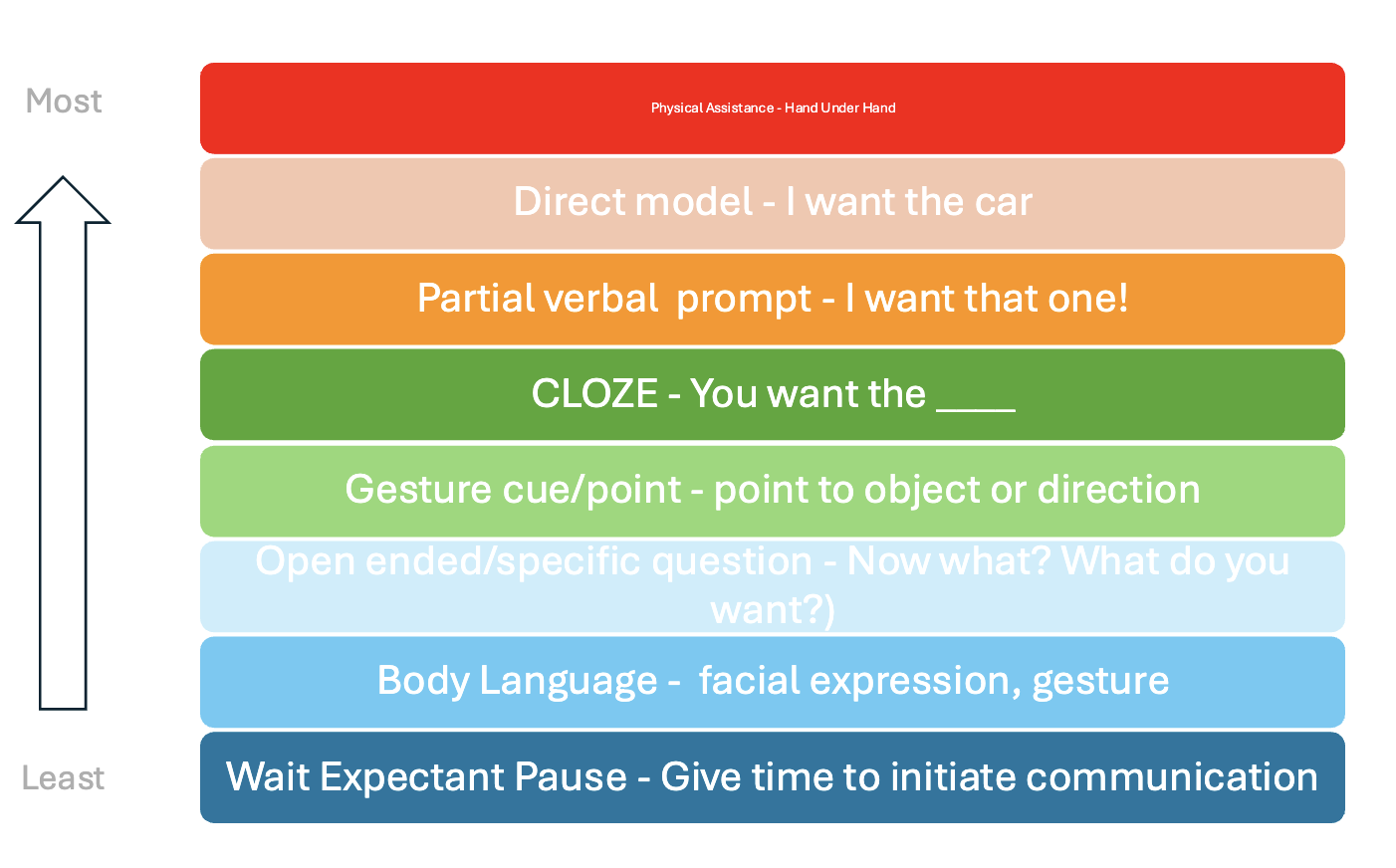prompts & cues
1/15
There's no tags or description
Looks like no tags are added yet.
Name | Mastery | Learn | Test | Matching | Spaced |
|---|
No study sessions yet.
16 Terms
prompts
more direct; explicit instruction
cues
more subtle; hint
why dont you overprompt
Whatever you provide as a prompt, you will have to fade later
Don’t instill prompt dependency
If you’re having to prompt a lot, reconsider your activity
Motivate, Motivate, Motivate!
least → most prompt

thoughts on behavior chart
we dont want to put neurodivergent kids at a risk of abuse. we are telling them its ok to tolerate situations where they are overwhelmed and/or distresed
why is play so important?
they are learning so much! like math, concentration, sensory exploration, science, language, social and emotional skills, creativity, physical development
play in a way that facilitates…
communication
create what for interacting and language learning
a positive environment
You have to be the most interesting, fun thing in the room. Extrinsic rewards (stickers) reduce intrinsic motivation.
Use what as a starting point in play?
the child’s interests
You don’t need to use “non-preferred” items...we already know they don’t prefer them. Let them choose
Avoid using the phrase…
Be careful with using…
“say ___”
“don’t _____”
Don’t withhold items to force communication. what should you do instead?
provide the object as you’re providing the model
Don’t test the child. example?
what’s this, what’s this, what’s this?
Replace questions with what?
comments
Use more ____ language (_____, _____) and less _____ language (_____, _____)
declarative (comments, observations)
imperative (questions, directives)
Don’t artificially sabotage. what does that mean?
continually take things away to have them request
Praise with ____
intent (be specific)